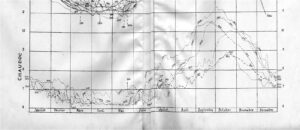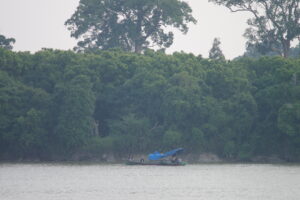インドネシア
R4-5 1-3 「近代東南アジアにおける社会経済の変容と季節性」(令和4-5年度 AY2023 継続)
本研究では近代東南アジアを対象に、本来自然環境制約の強い季節的な経済変動にどのように変化がみられたのかを明らかにする
R4-5 1-3 "Socio-economic change and seasonality in modern Southeast Asia" (R4-5 AY2023)
This project explores how seasonal fluctuations have changed in modern Southeast Asia, where the natural environments have inherently constrained and defined regional economic activities
R4-5 1-6 「インドネシア・リアウ州の熱帯泥炭地における氾濫原保護区の設定についての超学際的研究」(令和4-5年度 AY2023 継続)
インドネシアでは、環境破壊が進む熱帯泥炭地の保全・修復と持続可能な利用を目標に、さまざまな政策や活動が行われてきました
R4-5 1-6 "Transdisciplinary research on the establishment of a floodplain-forest reserve in a fishing village in Riau, Indonesia" (R4-5 AY2023)
This study aims to establish a floodplain forest reserve in a tropical peat area in Riau, Indonesia, and investigate the subsequent social and environmental changes in a fishing village
R5 2-5 「20世紀後半ジャワの占い本プリンボンから見る知 : 『イルム』に潜在する宗教的複合性」(令和5年度 AY2023)
本研究では、20世紀後半に多く出版されたインドネシア・ジャワの占いの要覧プリンボンに注目し、その内容の変遷を当時の社会状況との関連から明らかにする
R5 2-5 "Knowledges of divinatory manuals primbon in the late 20th Century Java: Religious complexity latent in “ilmu”" (R5 AY2023)
This study aims to examine the transformation of the primbon, the manulas of Javanese divination, published mainly in the late 20th century, with the social conditions of the time. Primbon mainly describes Javanese divination, which is based on calendars and calculations, but also deals with other matters that vary from period to period and region to region
R4-5 4-1 「東南アジアの脱農化パラドクスの解明に向けた道具立て: 包括的枠組みの構築へ」(令和4-5年度 AY2023 継続)
東南アジアでは、数十年間にわたり様々な局面において農業・農村の重要度が低下する脱農化が進行してきた。一方、農地面積の拡大や農業生産の増加といった農業化の傾向も同時期にみてとれる
R4-5 4-1 "A Preliminary Study on the Paradox of De-agrarianization in Southeast Asia" (R4-5 AY2023)
In Southeast Asia, the importance of the agricultural sector and rural areas in the economy and society has been declining since the late twentieth century, which can be understood as part of a process of “de-agrarianization” proposed in previous academic studies. On the other hand, the continuous growth of farming areas and agricultural production, which can be referred to as “agriculturalization,” during the same period has also been apparent




